INDICATIONS
Moduretic is used for treating fluid retention (edema) and high blood pressure. It may be used alone or with other medicines. Moduretic is a diuretic (water pill) and is a combination of a potassium-sparing diuretic (amiloride) and a thiazide diuretic (hydrochlorothiazide). It works by making the kidneys eliminate sodium (salt) and water from the body, which helps to lower blood pressure. The amiloride component helps minimize potassium loss.
INSTRUCTIONS
Use Moduretic as directed by your doctor.
- Take Moduretic by mouth with food.
- Moduretic may increase the amount of urine or cause you to urinate more often when you first start taking it. To keep this from disturbing your sleep, try to take your dose before 6 pm.
- If you miss a dose of Moduretic, take it as soon as possible. If it is almost time for your next dose, skip the missed dose and go back to your regular dosing schedule. Do not take 2 doses at once.
Ask your health care provider any questions you may have about how to use Moduretic.
STORAGE
Store Moduretic at room temperature, between 59 and 86 degrees F (15 and 30 degrees C). Store away from heat, moisture, and light. Do not store in the bathroom. Keep Moduretic out of the reach of children and away from pets.
MORE INFO:
Active Ingredient: Amiloride HCl-Hydrochlorothiazide.
Do NOT use Moduretic if:
- you are allergic to any ingredient in Moduretic or any other sulfonamide (eg, sulfamethoxazole)
- you are unable to urinate, have severely decreased kidney function, or high blood potassium
- you are taking other potassium-sparing diuretics (eg, spironolactone), potassium supplements, salt substitutes containing potassium, or dofetilide.
Contact your doctor or health care provider right away if any of these apply to you.
Some medical conditions may interact with Moduretic. Tell your doctor or pharmacist if you have any medical conditions, especially if any of the following apply to you:
- if you are pregnant, planning to become pregnant, or are breast-feeding
- if you are taking any prescription or nonprescription medicine, herbal preparation, or dietary supplement
- if you have allergies to medicines, foods, or other substances
- if you have cirrhosis or liver problems, diabetes, gout, kidney problems or kidney stones, asthma, heart problems, or systemic lupus erythematosus (SLE or lupus)
- if you have elevated blood acid, low folic acid levels, or electrolyte problems, or are dehydrated.
Some medicines may interact with Moduretic. Tell your health care provider if you are taking any other medicines, especially any of the following:
- Potassium-sparing diuretics (eg, spironolactone), potassium supplements, or salt substitutes containing potassium because high blood potassium levels may occur and cause listlessness, confusion, abnormal skin sensations of the arms and legs, heaviness of limbs, slowed heart rate, irregular heart rhythm, or stopping of the heart
- Cholestyramine or colestipol because they may decrease Moduretic’s effectiveness
- Nonsteroidal anti-inflammatory drugs (NSAIDs) (eg, indomethacin) because they may decrease Moduretic’s effectiveness of Moduretic may be decreased and the risk of kidney problems may be increased
- Barbiturates (eg, phenobarbital), certain chemotherapy medicines, corticosteroids (eg, prednisone), digoxin, dofetilide, ketanserin, narcotic pain medicines (eg, codeine), or medicines for high blood pressure because the risk of their side effects may be increased by Moduretic
- Diazoxide, lithium, or nondepolarizing neuromuscular blockers (eg, pancuronium) because their actions and the risk of their side effects may be increased by Moduretic
- Angiotensin-converting enzyme (ACE) inhibitors (eg, enalapril) because the risk of high blood potassium and kidney problems may be increased by Moduretic
- Diabetes medicines (eg, glipizide) or insulin because their effectiveness may be decreased by Moduretic.
This may not be a complete list of all interactions that may occur. Ask your health care provider if Moduretic may interact with other medicines that you take. Check with your health care provider before you start, stop, or change the dose of any medicine.
Important safety information:
- Moduretic may cause dizziness. These effects may be worse if you take it with alcohol or certain medicines. Use Moduretic with caution. Do not drive or perform other possibly unsafe tasks until you know how you react to it.
- Moduretic may cause dizziness, lightheadedness, or fainting; alcohol, hot weather, exercise, or fever may increase these effects. To prevent them, sit up or stand slowly, especially in the morning. Sit or lie down at the first sign of any of these effects.
- Patients who take medicine for high blood pressure often feel tired or run down for a few weeks after starting treatment. Be sure to take your medicine even if you may not feel “normal.” Tell your doctor if you develop any new symptoms.
- Moduretic may cause you to become sunburned more easily. Avoid the sun, sunlamps, or tanning booths until you know how you react to Moduretic. Use a sunscreen or wear protective clothing if you must be outside for more than a short time.
- Tell your doctor or dentist that you take Moduretic before you receive any medical or dental care, emergency care, or surgery.
- Diabetes patients – Moduretic may affect your blood sugar. Check blood sugar levels closely. Ask your doctor before you change the dose of your diabetes medicine.
- Lab tests, including liver function, kidney function, lung function, blood pressure, and fasting blood glucose, may be performed while you use Moduretic. These tests may be used to monitor your condition or check for side effects. Be sure to keep all doctor and lab appointments.
- Moduretic should not be used in children; safety and effectiveness in children have not been confirmed.
- Pregnancy and breast-feeding: If you become pregnant, contact your doctor. You will need to discuss the benefits and risks of using Moduretic while you are pregnant. It is not known if Moduretic is found in breast milk. Do not breastfeed while taking Moduretic.
Side Effects
All medicines may cause side effects, but many people have no, or minor, side effects.
Check with your doctor if any of these most common side effects persist or become bothersome:
Changes in blood sugar; constipation; dizziness; fatigue; headache; inflammation of a salivary gland; loss of appetite; nausea; sensitivity to sunlight; stomach pain; weakness.
Seek medical attention right away if any of these severe side effects occur:
Severe allergic reactions (rash; hives; itching; difficulty breathing; tightness in the chest; swelling of the mouth, face, lips, or tongue); dry mouth; excessive thirst; impotence; leg or muscle cramps; mental confusion; rapid, weak, or irregular heartbeat; stomach pain; urination problems; vomiting; yellowing of skin or eyes.
This is not a complete list of all side effects that may occur. If you have questions about side effects, contact your health care provider.

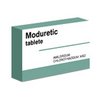
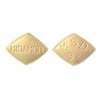





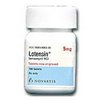
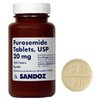
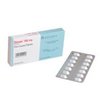

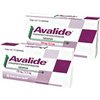

Reviews
There are no reviews yet.